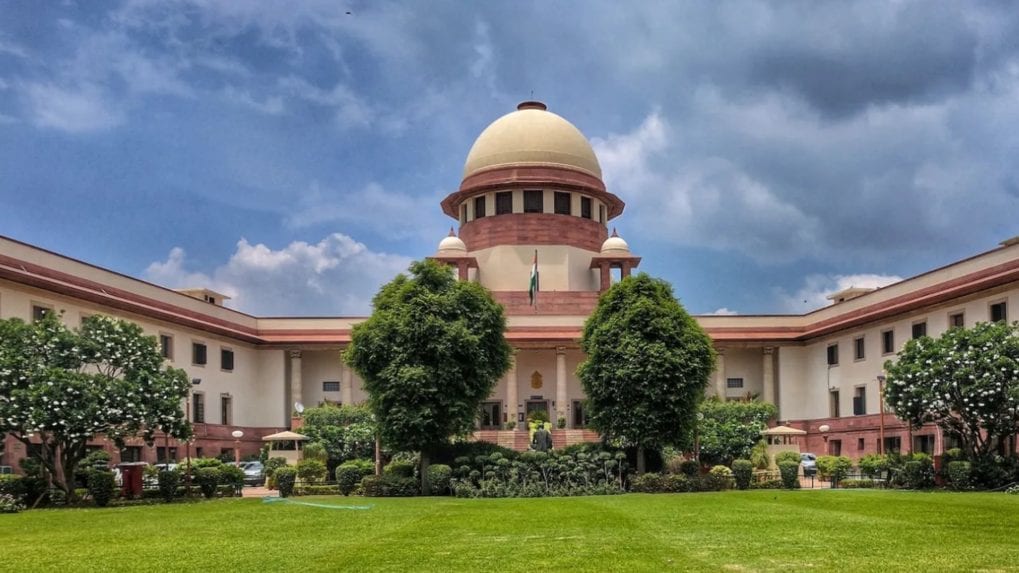Breaking: “Online gaming stakes mirror lottery tickets”, Govt tells SC
The Directorate General of Goods and Services Tax Intelligence (DGGI), along with other petitioners, has challenged a Karnataka High Court order that quashed a ₹21,000 crore GST demand on Gameskraft.
ADVERTISEMENT
The Supreme Court on Thursday heard detailed submissions from the Central Government in the Goods and Services Tax (GST) case against Gameskraft Technologies Pvt. Ltd and others.
The Centre, represented by Additional Solicitor General (ASG) N. Venkataraman, argued that the act of staking money in online games like rummy constitutes an "actionable claim"—a classification that would make it taxable under the GST regime.
Read More: Online format can’t shield games from regulation, Karnataka argues in SC
The Directorate General of Goods and Services Tax Intelligence (DGGI), along with other petitioners, has challenged a Karnataka High Court order that quashed a ₹21,000 crore GST demand on Gameskraft, ruling that games of skill are not liable to GST.
The Centre's core argument hinges on whether the players’ stakes in online games qualify as actionable claims under Section 3 of the Transfer of Property Act, 1882. According to the ASG, actionable claims include any beneficial interest in moveable property, contingent on the outcome of an uncertain event, which civil courts recognize as grounds for relief. The government contends that the money pooled in gaming platforms—where the winner is undecided at the time of participation—is precisely that.
“The moment four players stake ₹10 each in an online game, a winning pot of ₹36 (₹4 is taken as commission by the platform) is created. At that point, each player has a conditional right to that pool, which satisfies the legal criteria of an actionable claim,” ASG Venkataraman told the Court.
Gameskraft has maintained that no actionable claim exists, as players are in control of their funds and the company merely acts as an intermediary holding funds in trust. They argue that the absence of title and control over winnings until the game concludes invalidates any actionable claim.
Read More: Breaking: “Fantasy Sports involve strategy, not wagering”, gaming firms tell SC
The ASG rebutted this position, stating that control lies with the platform, not the players. “Players cannot choose their opponents. The game is algorithmically matched, and funds are processed through pre-determined systems and rules set by the company,” he said, adding that the structure mimics the legal reasoning in the Sunrise Associates judgment, which declared lottery tickets as actionable claims.
Gameskraft has also cited Section 30 of the Indian Contract Act, which declares wagering agreements void and unenforceable in civil courts, arguing that this negates the concept of an actionable claim.
In response, the government clarified that Section 30 applies only when a wager exists between parties with mutual stakes. Since the gaming company itself does not bet or win, the contractual arrangement between it and players is not a wager. “The company merely facilitates betting or gambling, not wagers directly,” Venkataraman said, adding that even if the inter-player stakes were considered wagers, they still meet the definition of actionable claims under GST law.
The defence has also drawn a distinction between “creation” and “transfer” of actionable claims, arguing that only transfers are taxable under GST. The ASG countered this interpretation by emphasizing that Section 7 of the CGST Act defines “supply” broadly and inclusively—covering both creation and transfer of actionable claims.
“The act of supplying a platform that creates a right to win an amount based on a future event is itself a supply of actionable claim, thereby attracting GST,” he argued.
In another layer of arguments, the defence claimed that only grants by the state can result in actionable claims—citing the precedent from Anraj and Sunrise Associates. The Centre rejected this, asserting that rights in personam (private rights between individuals) can also qualify as actionable claims if they meet the legal criteria. “The Revenue’s case is not dependent on whether a State issues a grant. Even private contractual rights to a conditional payout fall within the GST framework,” Venkataraman said.
If the Supreme Court accepts the Centre’s arguments, the ruling could open the door to massive tax liabilities across the online gaming industry. Beyond Gameskraft, other major players could also face retrospective tax demands running into thousands of crores.
Read More: Breaking: States cannot regulate games of skill, gaming firms argue in Supreme Court


